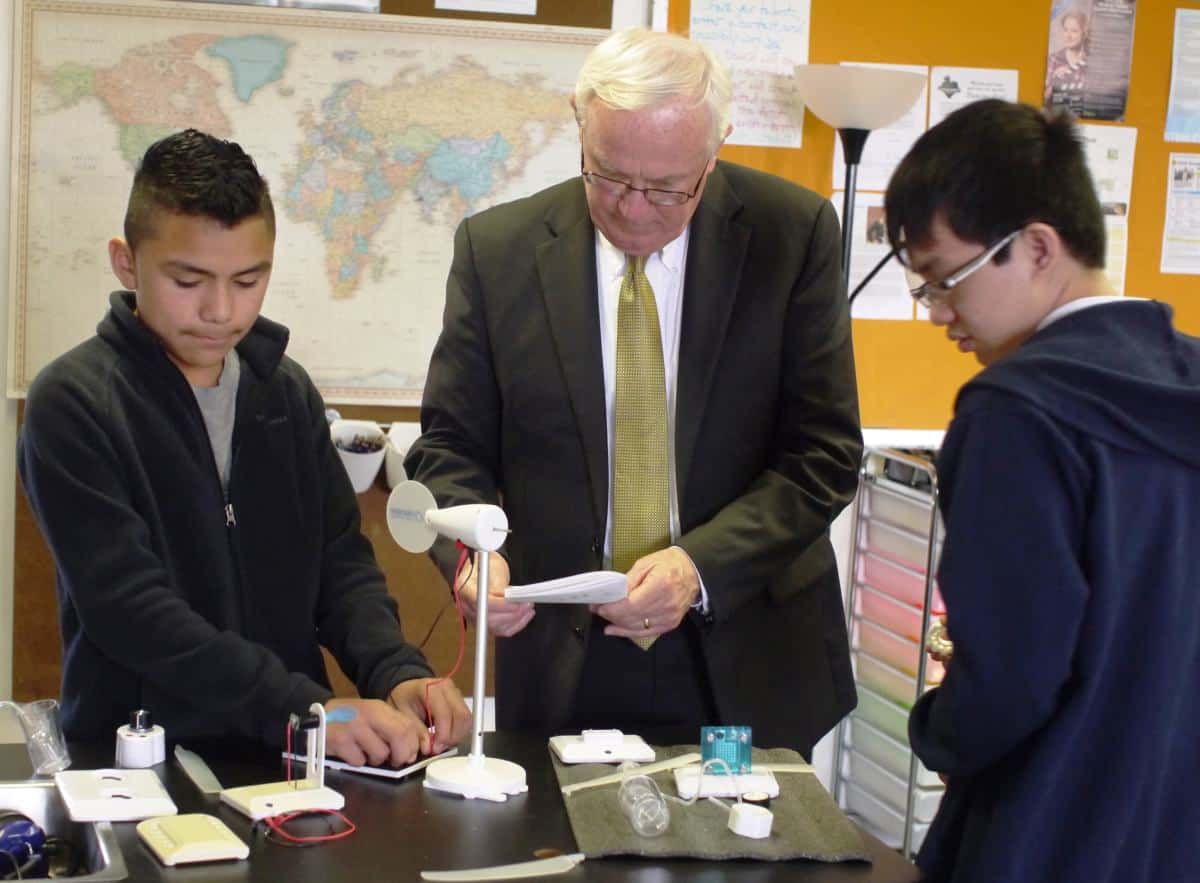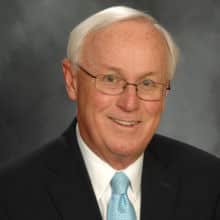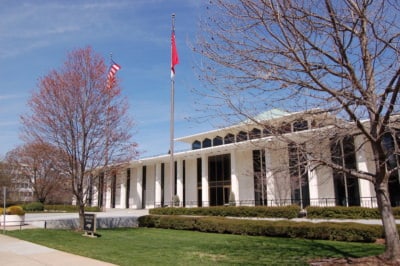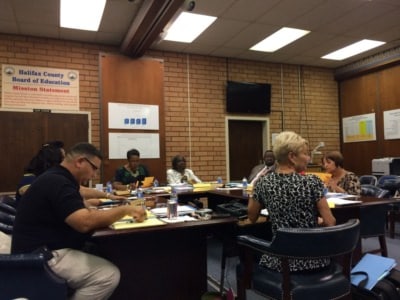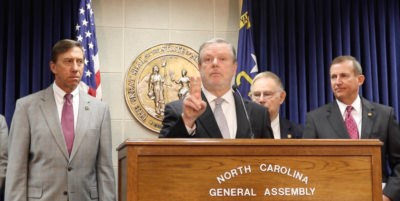Five years ago, I began work with my colleagues on the N.C. State Board of Education to outline steps our state should take to better prepare our public school students for their lives in an increasingly interconnected, global community. In 2013, after two years of testimony and recommendations from a cross-section of leaders from business, government, and education, we enacted a series of commitments and actions designed to make North Carolina’s graduates the most globally aware and prepared in the nation.
Today, as superintendent of the Alamance-Burlington School System (ABSS), I have the privilege of working with our teachers and principals to take those State Board recommendations and make them a classroom reality for the students in our schools.
If you don’t think global education when you think about Alamance County, you aren’t alone. But it also means you probably haven’t been in our schools recently. The fact is, we are working hard to be an example of how a community prepares its next generation for the global realities of the local economy.
A quick primer on Alamance: this county is home to many businesses and manufacturers that sell to an international market and understand the need for an educated, informed workforce. It also includes and is proximate to colleges and universities that are attractive to thousands of international students. One, Elon University, has become a national leader in providing opportunities for its students to travel and develop relationships with peers from around the world.
The international reality of our community is not lost on ABSS. In order to adequately prepare our students for the college, work, and citizenship today, we have taken steps to incorporate global education into classrooms throughout the county. In ABSS, we believe that global education not only prepares students for a better future, it also enables them to live a better quality of life in their hometown with the ability to understand and communicate with the different cultures, languages, and heritages.
David Young, CEO of VIF International Education, one of the leading global education providers in the country and an ABSS partner since 2007, says that the mistake most school systems make is thinking of global education as something you add to the school day. “The major shift for a district is understanding that global education is a lens through which teaching and learning are best achieved,” says Young. “There is no global education course. It’s about infusing global content and themes into what is already being taught.”
That is the path we are following. For us, global is part of the basics; it is not an elective. Examples of this can be seen throughout our system. Take Marvin B. Smith Elementary School. Teachers at Smith participate in a global professional development platform where they earn digital badges for their work. Principal Julie Hancock believes that the professional development fosters collaboration and encourages teachers to explore new ideas. “We celebrate our growth,” Hancock describes. “Badges are proudly displayed as a way for students and visitors to see that we are transforming into a more globally and culturally competent school. Global education isn’t something that we do at Smith. It is who we are.”
At Elon Elementary School, you see global artifacts and maps, paintings, literature, and art from around the world. Principal Jack Davern describes a marked change in the school’s atmosphere. “We are all learning something new each day in an exciting way. There is a greater sense of positive energy and enthusiasm toward teaching again. And our children are developing an understanding, appreciation, and acceptance of the differences in others.” Davern’s efforts at Elon are bolstered by the international teachers on his staff. Throughout the district, 33 international educators are both teaching and serving as ambassadors for their native country to teachers, students, and parents.
At Southern Alamance High School, teachers are implementing a cutting-edge approach to teaching Spanish. Piloting a new language and cultural studies course, Southern Alamance is introducing students to a much deeper understanding of the cultures of Spanish-speaking countries as well as the ability to communicate in a second language.
The list doesn’t stop there. South Graham Elementary and Eastlawn Elementary have their own efforts underway. And EM Yoder and Alexander Wilson Elementary Schools will implement in 2016-17.
The reality is that what we call international education, the rest of the world calls education. In an interconnected world, students need a greater awareness and understanding of different cultures, increased access to second language skills, and classroom content that is relevant. Our goal is for the experiences students are having at places like Smith, Elon South Graham, Eastlawn, and Southern Alamance to become the norm in all our schools.
As a long-time North Carolinian and former State Board chair, I want those experiences for all children in our state. Come visit ABSS and see what we are building — and how it might fit in your schools. Send your teachers, principals, and district leaders to see what we are creating. We want to take this journey with others and learn from a community of schools dedicated to truly preparing students for life after graduation. North Carolina isn’t just going to be more global in the future; North Carolina is global now.
